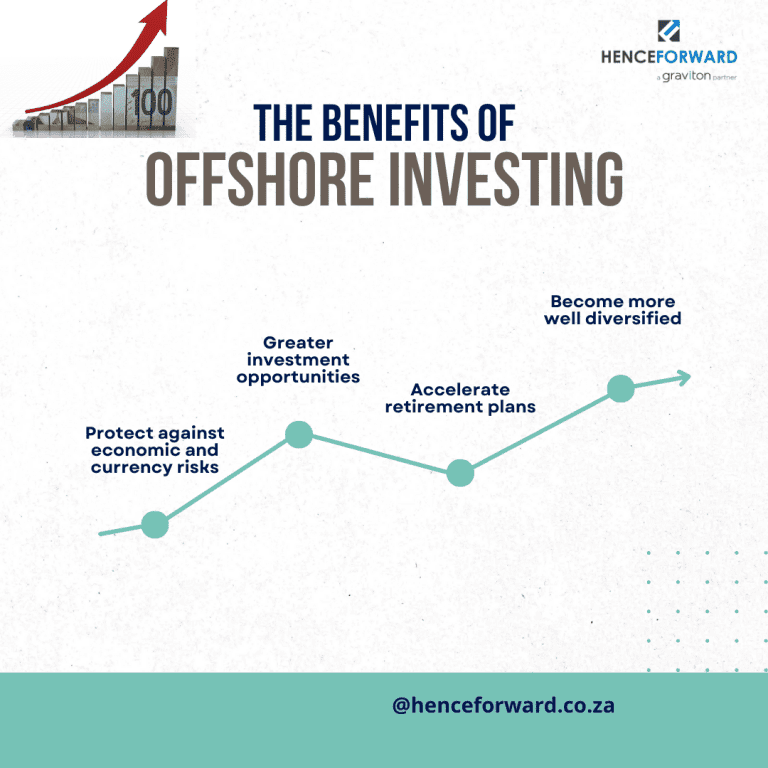Exploring Just How Spending Off Shore Functions: A Comprehensive Guide
Spending offshore offers a complex landscape of difficulties and possibilities. Recognizing the numerous types of overseas accounts is essential for any person considering this path. The advantages, including boosted privacy and possession defense, are significant. Nonetheless, lawful and tax effects warrant mindful focus. As financiers seek to enhance their profiles, the actions to develop a feasible offshore investment technique come to be essential. What are the crucial components that one must navigate to succeed in this endeavor?
Understanding Offshore Accounts and Their Kinds
What drives individuals and companies to contemplate offshore accounts? The appeal of economic personal privacy, property defense, and potential tax obligation benefits usually brings in the attention of those looking for to manage their riches extra strategically. Offshore accounts, normally developed in international jurisdictions, come in various types. Personal accounts satisfy specific requirements, using services like cost savings, investment, or retired life preparation. Service accounts, on the other hand, serve business seeking to assist in worldwide deals, improve privacy, or optimize tax obligation commitments. Trust accounts provide an extra layer of security, enabling individuals to protect their possessions for future beneficiaries. Each kind of offshore account offers unique attributes, typically influenced by the regulative setting of the host country. Recognizing these differences is important for individuals and services, as the option of account type can especially influence their monetary methods and conformity with international laws.
Benefits of Offshore Spending
While lots of financiers look for possibilities to diversify their profiles, offshore spending presents distinctive benefits that can enhance monetary growth and security. One noteworthy advantage is the potential for possession security. Offshore accounts can safeguard investments from political instability or financial recessions in the capitalist's home country. Furthermore, offshore financial investments frequently provide access to global markets, permitting investors to touch into arising economies and markets that might not be available domestically.Another considerable benefit is tax obligation efficiency. Numerous overseas territories supply beneficial tax obligation regimes, which can lessen tax obligation liabilities and enhance overall returns. Overseas investing can boost personal privacy, as certain territories enforce strict discretion laws.Lastly, offshore accounts can promote wealth monitoring methods by offering a broader variety of investment choices, consisting of different possessions such as genuine estate and assets. Collectively, these benefits make overseas spending an enticing choice for those aiming to reinforce their economic portfolios.

Lawful and Governing Factors to consider
Steering with the governing and lawful landscape of overseas investing needs cautious interest and understanding. Investing Off Shore. Investors should browse an intricate web of legislations that vary substantially from one territory to an additional. Conformity with neighborhood policies is vital; failing to do so can result in serious penalties, consisting of fines and imprisonment. Additionally, understanding the lawful frameworks regulating international financial investments is crucial for ensuring the protection of assets and maintaining operational legitimacy.Key considerations include recognizing the governing demands for establishing overseas entities, such as trusts or top article corporations, and sticking to anti-money laundering (AML) and know-your-customer (KYC) laws. Financiers need to also know reporting responsibilities in their home country, as lots of countries call for disclosure of offshore holdings. Engaging with attorneys experienced in overseas investment can provide very useful guidance, helping investors to reduce threats and protected compliance with suitable laws and guidelines while optimizing their financial investment possibility

Tax Obligation Effects of Offshore Investments
Comprehending the legal and regulative factors to consider of offshore investing normally results in an evaluation of the tax obligation implications related to these investments. Offshore financial investments can review use substantial tax advantages, consisting of reduced tax obligation rates and the capacity for tax obligation deferral. However, investors must browse complex tax guidelines in their home nations, as numerous jurisdictions call for taxpayers to report international revenue and assets.For united state citizens, the Foreign Account Tax Obligation Conformity Act (FATCA) mandates the reporting of overseas accounts, while other nations have similar needs. Failure to comply can lead to severe charges. Furthermore, particular overseas funds might go through special tax obligation therapies, such as Passive Foreign Financial Investment Firm (PFIC) rules, making complex financial investment strategies.Investors need to consider getting in touch with tax professionals to understand implications specific to their situations and warranty compliance with both worldwide and domestic tax obligation regulations, eventually optimizing the benefits of their overseas financial investments while lessening risks.
Steps to Begin With Offshore Spending
Many capitalists looking for to expand their portfolios turn to overseas investing as a feasible choice. To begin, one need to conduct comprehensive study on possible overseas territories, considering aspects such as governing environment, taxation, and financial investment possibilities. Investing Off Shore. After choosing an appropriate location, capitalists ought to establish an offshore account, which usually needs documentation confirming identification and source of funds.Next, capitalists often involve with a monetary advisor or an overseas financial investment company knowledgeable about regional regulations and market dynamics. This partnership can aid in crafting a tailored investment approach that lines up with individual goals and run the risk of tolerance.Once the technique remains in place, financiers can continue to choose specific properties or funds for investment, ensuring they assess efficiency and takes the chance of routinely. Maintaining conformity with both neighborhood and home country guidelines is vital for effective overseas investing, needing ongoing diligence and potentially regular examinations with lawful professionals.

Regularly Asked Inquiries
Exactly how Do I Pick the Right Offshore Jurisdiction?
Choosing the appropriate overseas territory includes assessing variables such as regulative environment, tax obligation advantages, political stability, and simplicity of operating. Investigating each choice thoroughly ensures enlightened decisions that line up with private investment objectives and risk resistance.
What Sorts Of Possessions Can I Hold Offshore?

Exist Risks Connected With Offshore Spending?
The dangers connected with offshore investing include lawful intricacies, regulatory changes, money fluctuations, and possible political instability. Financiers should very carefully examine these factors to reduce risks and guarantee compliance with international legislations and guidelines.
How Can I Access My Offshore Finances?
To gain access to offshore funds, people commonly require to contact their financial institution, offer required identification and paperwork, and comply with well established protocols for fund transfers, click over here now making certain compliance with both neighborhood and global policies controling offshore financial investments.
What Are Typical Misunderstandings Concerning Offshore Accounts?
Usual misunderstandings regarding offshore accounts consist of ideas that they are exclusively for tax evasion, absence of law, or obtainable to the affluent. Actually, they can be legitimate economic tools for varied people. Furthermore, offshore financial investments frequently supply accessibility to international markets, allowing capitalists to tap into emerging economies and markets that might not be readily available domestically.Another substantial advantage is tax performance. Offshore investing can boost privacy, as particular jurisdictions apply stringent discretion laws.Lastly, overseas accounts can facilitate wealth management strategies by providing a wider array of financial investment options, including alternate possessions such as actual estate and commodities. Comprehending the legal and regulative considerations of overseas investing normally leads to an examination of the tax implications linked with these investments. Offshore financial investments can supply substantial tax advantages, including decreased tax prices and the capacity for tax deferment. After choosing an appropriate location, capitalists must establish an offshore account, which normally needs documentation confirming identification and resource of funds.Next, financiers often engage with an offshore investment or an economic expert company acquainted with local laws and market dynamics.